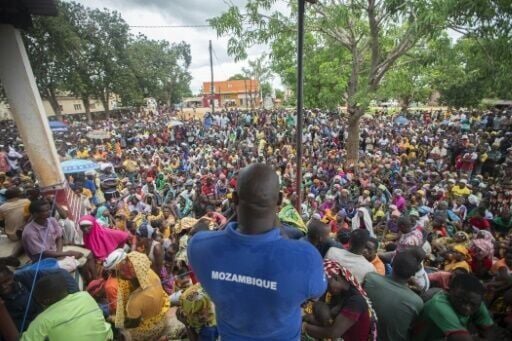MAPUTO, (Reuters) – Tens of thousands of Mozambicans are fleeing their homes in the restive Cabo Delgado province amid a surge in deadly insurgent attacks since January.
The attacks, despite a massive security clampdown, are continuing as French oil company TotalEnergies TTEF.PA aims to restart a $20 billion liquefied natural gas terminal in Cabo Delgado in the coming months. The project was halted in 2021 after a deadly Islamic State-linked attack in a town near it.
Recent attacks include a deadly skirmish on Feb. 9 that claimed the lives of up to 25 Mozambique Defence Armed Force soldiers, according to local media reports, a significant blow to government efforts to quell violence during an election year.
On Tuesday a senior government official said just over 67,000 people had fled attacks in recent weeks, many displaced to neighbouring province Nampula and others to safer parts of Cabo Delgado.
“What is particularly of concern to UNICEF is that the majority of these displaced people are women and children, more than two-thirds of the total when combined,” Guy Taylor, UNICEF’s Mozambique spokesperson said on Wednesday.
So far this year, 56 incidents of insurgent-led aggression have been recorded, said Tertius Jacobs, head analyst for Mozambique at risk management firm Focus Group.
“So, only two months into the year and we’ve already had more than half of the number of attacks we’ve had for the whole of last year,” he said.
Insurgents were attacking civilian targets such as churches and homes and were posing a “significant risk” to a major highway route, EN1, which moves key commodities to Nacala port, Jacobs added.
TotalEnergies CEO Patrick Pouyanne has said the company was monitoring the situation to make sure it was safe before committing to restart operations.
“What I want to avoid is making the decision to bring people back and then being forced to evacuate them again,” he said in early February during an announcement of 2023 annual results. The company declined to provide further comment on the latest attacks.
Mozambique’s defence ministry did not respond to a request for comment.
ExxonMobil XOM.N, who are mulling a separate LNG terminal in Cabo Delgado, did not immediately respond to requests for comment.
Analysts expect the Rwandan army, which is mainly patrolling the energy hub zone in the north of Cabo Delgado, to expand its role once a regional Southern African military force ends its deployment to Mozambique in July.
“The insurgency is not near its end and the normalisation narrative is driven by economic interests and not by realities in Cabo Delgado,” Jasmine Opperman, an extremism expert focused on southern Africa, said.
“This is about organised chaos to create fear, to recruit and spread an Islamic extremism narrative,” Opperman added.






